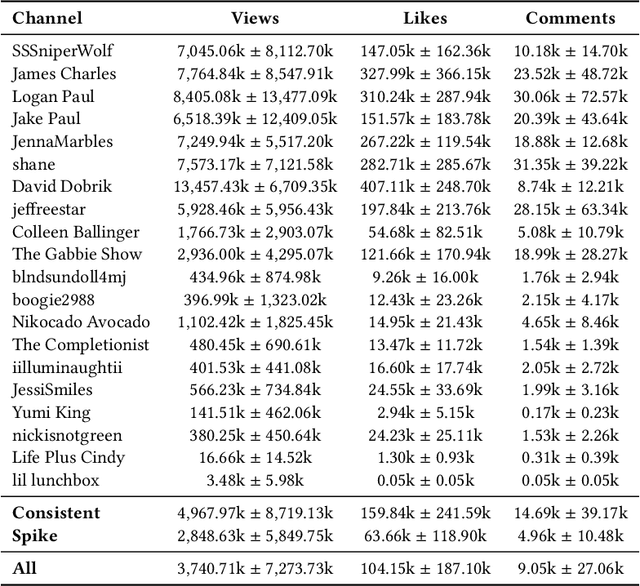The Monetisation of Toxicity: Analysing YouTube Content Creators and Controversy-Driven Engagement
Paper and Code
Aug 01, 2024



YouTube is a major social media platform that plays a significant role in digital culture, with content creators at its core. These creators often engage in controversial behaviour to drive engagement, which can foster toxicity. This paper presents a quantitative analysis of controversial content on YouTube, focusing on the relationship between controversy, toxicity, and monetisation. We introduce a curated dataset comprising 20 controversial YouTube channels extracted from Reddit discussions, including 16,349 videos and more than 105 million comments. We identify and categorise monetisation cues from video descriptions into various models, including affiliate marketing and direct selling, using lists of URLs and keywords. Additionally, we train a machine learning model to measure the toxicity of comments in these videos. Our findings reveal that while toxic comments correlate with higher engagement, they negatively impact monetisation, indicating that controversy-driven interaction does not necessarily lead to financial gain. We also observed significant variation in monetisation strategies, with some creators showing extensive monetisation despite high toxicity levels. Our study introduces a curated dataset, lists of URLs and keywords to categorise monetisation, a machine learning model to measure toxicity, and is a significant step towards understanding the complex relationship between controversy, engagement, and monetisation on YouTube. The lists used for detecting and categorising monetisation cues are available on https://github.com/thalesbertaglia/toxmon.
 Add to Chrome
Add to Chrome Add to Firefox
Add to Firefox Add to Edge
Add to Edge